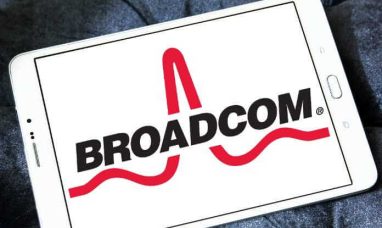Meta Platforms Inc. has experienced a staggering rally, fueled by artificial intelligence (AI), adding $1 trillion in market value since its challenging period in 2022. Despite this surge, some perspectives suggest that Meta’s stock is still trading at a discount compared to its peers.
As of early Wednesday, Meta’s shares traded at 24 times estimated earnings, roughly aligning with its 10-year average and slightly below the 25 times of the Nasdaq 100 index. Among the prominent tech companies known as the “Magnificent Seven,” only Alphabet Inc., with a multiple of about 21, boasts a cheaper valuation.
AI stands out as the primary driver of Meta’s gains and is viewed as a significant future growth catalyst for the company. Meta’s substantial investment in AI technology, aimed at enhancing ad targeting and content recommendation, has been a key factor in its recent success. The company’s profits tripled in its most recent quarterly report, accompanied by robust revenue growth. Consequently, Meta announced a $50 billion buyback program and introduced a dividend.
According to Conrad van Tienhoven, a portfolio manager at Riverpark Capital, Meta has benefited immensely from AI, particularly in terms of driving growth. The company’s ability to leverage AI for targeted advertising and measurement has positioned it for sustained growth over the next several years.
Since its lowest point nearly 18 months ago, Meta’s stock has surged by over 450%, with a notable gain of about 46% this year alone, trailing only chipmaker Nvidia Corp. among the Magnificent Seven.
Meta’s rebound follows a significant selloff that saw more than three-fourths of its valuation erased, largely due to concerns surrounding spending on its metaverse initiative. Despite continuing investment in the metaverse, Meta has prioritized cost-cutting efforts, designating 2023 as the “Year of Efficiency.”
Rick Bensignor, CEO of Bensignor Investment Strategies, highlights Meta’s ability to streamline spending and innovate as key strengths. He views Meta as a compelling long-term investment, despite potential drawdown risks associated with its high valuation.
While both Meta and Alphabet offer exposure to ad revenue, Alphabet presents a cheaper valuation and has delivered a more modest performance this year, with a 12% gain compared to Meta’s rally. Analysts generally see slightly more upside for Alphabet at current levels.
RBC Capital Markets noted Meta’s outperformance relative to Alphabet in the digital advertising market and raised its price target on Meta accordingly. The company is set to report its first-quarter earnings results on April 24, with investor focus on ad revenue growth, AI performance, and monetization strategies.
Meta’s dominance in the social media landscape has become even more apparent amid struggles at its peers like Pinterest Inc. and Snap Inc., both reporting weak sales. Even the newly public Reddit Inc. has failed to generate much excitement among analysts.
Mark Shmulik of Bernstein suggests that mid-sized social platforms may struggle to compete effectively in Meta’s shadow, raising questions about their ability to achieve levels of engagement, monetization, and profitability comparable to Meta.
Featured Image: Unsplash









